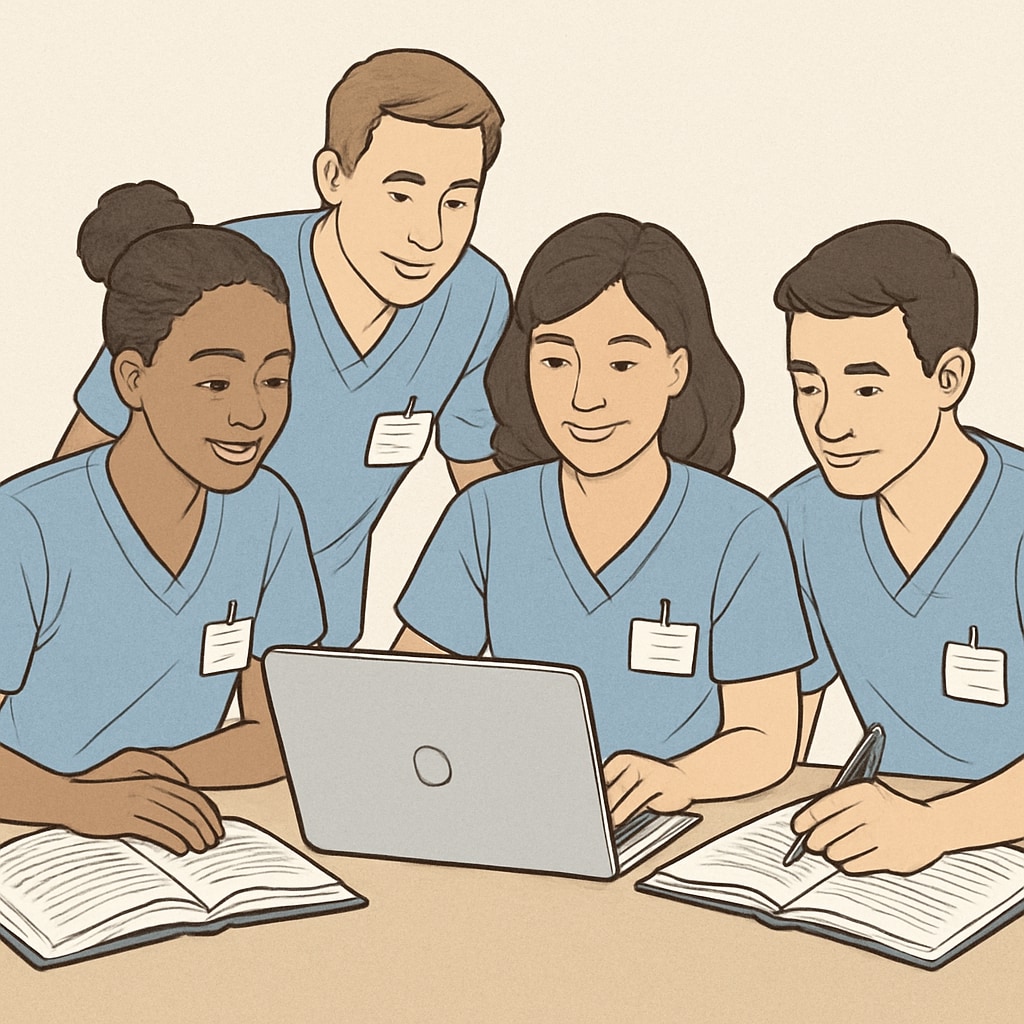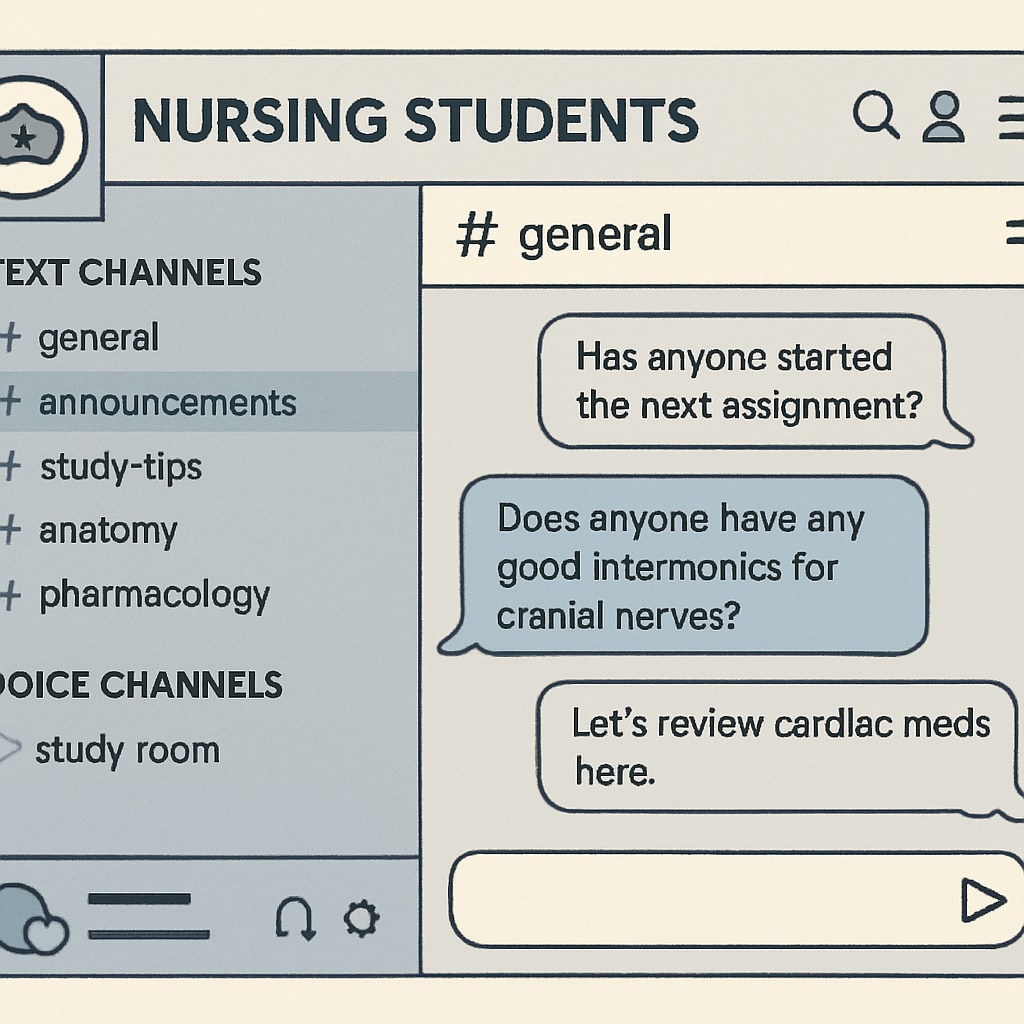In today’s digital era, nursing students face unique challenges in their academic journey. Balancing clinical practices, coursework, and exams can be overwhelming. However, joining study groups and utilizing platforms like Discord can significantly enhance their learning experience. This article delves into the benefits of peer learning communities, the role of technology in fostering collaboration, and actionable strategies for building supportive ecosystems.
The Role of Peer Learning in Nursing Education
Nursing education involves more than memorizing medical terms or procedures; it requires critical thinking, problem-solving, and teamwork. Peer learning communities—such as study groups—are essential for fostering these skills. By working with peers, nursing students can:
- Exchange knowledge and clarify doubts.
- Develop communication and collaboration skills.
- Prepare more effectively for exams and clinical rotations.
For example, a study published by the Collaborative Learning Wikipedia page highlights the cognitive and emotional benefits of learning with peers, including increased motivation and better retention of information.

Why Discord is a Game-Changer for Study Groups
Discord, initially designed for gamers, has evolved into a versatile platform for educational collaboration. Its features—such as real-time voice channels, text chats, and file-sharing capabilities—make it ideal for nursing students to connect and study together remotely. Key advantages of using Discord for study groups include:
- Flexibility: Students can join discussions anytime, regardless of location.
- Customization: Channels can be organized by topics, such as pharmacology, anatomy, or clinical case studies.
- Community building: Discord fosters a sense of belonging, motivating students to stay engaged.
Furthermore, a report by Britannica emphasizes the role of online communities in enhancing social and academic support, which aligns perfectly with the needs of nursing students navigating complex curricula.

Practical Steps to Build and Maintain Effective Study Groups
Building a successful study group—whether offline or on Discord—requires intentional planning. Here are some strategies to consider:
- Define Goals: Establish clear objectives for the group, such as reviewing weekly lectures or practicing case scenarios.
- Set Ground Rules: Agree on attendance, participation, and communication norms to ensure productivity.
- Utilize Tools: Incorporate technology like Discord, Google Drive, or Quizlet for seamless collaboration.
- Encourage Inclusivity: Create an environment where all members feel valued and heard.
By following these steps, nursing students can maximize the benefits of peer learning while also honing their organizational and leadership skills.
The Role of Educators and Parents in Supporting Peer Learning
While students form the core of study groups, educators and parents play a crucial role in facilitating their success. Teachers can guide students on how to structure their groups effectively, while parents can provide the necessary resources or time management support. Additionally, institutions can encourage the use of platforms like Discord by offering training sessions or integrating them into curricula.
As a result, a collaborative effort among students, educators, and families can lead to the creation of dynamic learning ecosystems that empower nursing students to thrive academically and socially.
In conclusion, peer learning communities, supported by modern tools like Discord, are transforming how nursing students approach their studies. By fostering collaboration, improving access to resources, and nurturing essential skills, these communities are paving the way for a more engaging and effective educational experience.
Readability guidance: This article employs short paragraphs, lists, and examples to ensure clarity. Transition words are used throughout to maintain flow, and complex terms have been defined where necessary.


